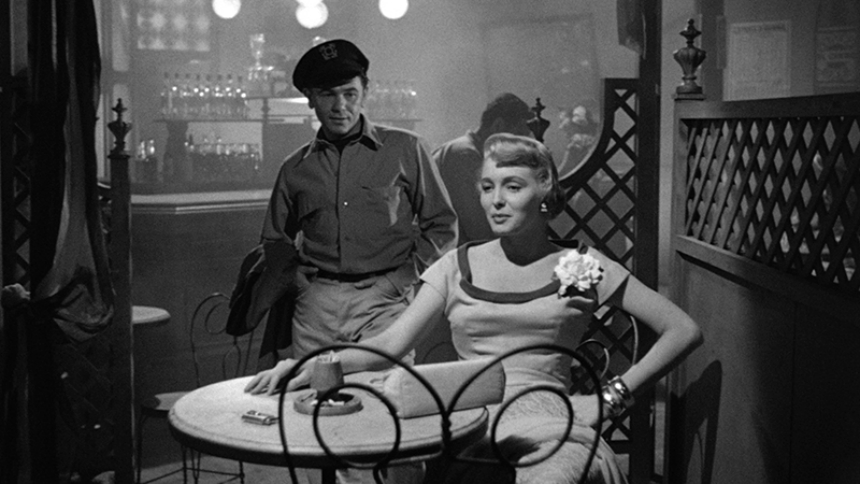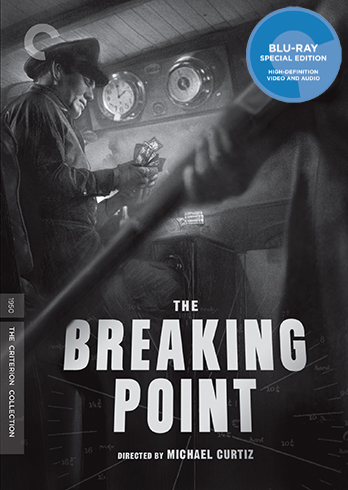Blu-ray Review: THE BREAKING POINT, Brutal, Merciless Melodrama on Criterion
John Garfield stars as a desperate war veteran in Michael Curtiz's adaptation of Ernest Hemingway's TO HAVE AND HAVE NOT.

Remakes are not always bad things. Take, for example, The Breaking Point, based on a novel by Ernest Hemingway.
First published in 1937, To Have and Have Not followed the adventures of Harry Morgan, a fishing boat captain in Key West, who is forced into the black market, ferrying contraband between Florida and Cuba.
Seven years later, it was adapted for the big screen by director Howard Hawks, based on a screenplay credited to Jules Furthman and William Faulkner (?!). The film departed significantly from its source material, becoming a romantic, wartime thriller with comic elements, featuring the first screen appearance by Lauren Bacall, who famously fell in love with Humphrey Bogart during production.
I've seen Hawks' version of To Have and Have Not so many times that it's become indelible in my memory. Yet I never once thought of it while watching The Breaking Point, which is a gripping, far more dramatic adventure.
John Garfield stars as Harry Morgan, a veteran of World War II who is struggling to make a living as a fishing boat captain in Southern California. He is married to Lucy (Phyllis Thaxter), a steady, loving woman; they have two young daughters and their own small home. (All the domestic scenes were added by screenwriter Ranald MacDougall.)
Harry has fallen behind on his monthly boat payments. Lucy, as well as Harry's loyal first mate, Wesley Park (Juano Hernandez), gently encourage him to think about another line of work. But Harry is fixated on his dream, imagining that he can't do anything else. That mindset -- an uneasy marriage of obsession and low self-esteem -- fixes his fate.
Practically down to his last dollar, Harry figures that his next job, a three-week fishing cruise to Mexico, will tide him over. His customer, Hannagan (Ralph Dumke), arrives with an unexpected guest, Leona Charles (Patricia Neal, blonde and just 24 at the time), and declares he doesn't want to fish, which is Harry's sole purpose for the business. Harry is further irked by Leona's conduct because she keeps flirting with him.
Soon after their arrival in Mexico, Hannagan skips out on his bill, leaving Harry and Wesley (and Leona) stuck. Out of options and more desperate than ever, Harry agrees to a shady deal with a greasy lawyer named Duncan (Wallace Ford), leading to even greater trouble for everybody.
 The Breaking Point slowly evolves into a dramatic study of Harry, raising questions that he doesn't want to answer. He has a tender relationship with his wife and two adorable children, yet his family is not a top priority, despite his rationalizing that he's doing everything for them.
The Breaking Point slowly evolves into a dramatic study of Harry, raising questions that he doesn't want to answer. He has a tender relationship with his wife and two adorable children, yet his family is not a top priority, despite his rationalizing that he's doing everything for them.
He is continually tempted by Leona, pushing her away but not too far. He has a deep friendship with Wesley, ignoring their racial differences (not a common option in 1950 America), yet refuses to confide in him.
Whenever I see Michael Curtiz's name, I always pay attention, since he's directed some of my favorite films over the years, and The Breaking Point ranks in the upper echelon of his work. I must confess, though, that until I read the Criterion Collection's announcement that a new Blu-ray version was on its way, I'd never heard of it.
Critic and biographer Alan K. Rode (Michael Curtiz: A Life in Film) explains what happened to the film in a new 20-minute interview, recorded in 2017, that's included on Criterion's Blu-ray. It's a very helpful feature.
Also excellent is a new 10-minute video essay by Taylor Ramos and Tony Zhou that analyzes Curtiz's "fluid style," which is a great description of the filmmaker's talent.
The third new supplement is a 5-minute talk with Julie Garfield, actor, acting instructor, and daughter of John Garfield, in which she speaks very frankly about her father and the troubles he encountered in his career, which ended prematurely in 1952, less than two years after the release of The Breaking Point. Garfield died at the age of 39, which is heartbreaking.
So is the film's final scene, invented by Michael Curtiz, which reminds us that, in the end, we're all alone in this world.
The fine-looking disc from the Criterion Collection also includes a 5-minute episode of U.S. morning show Today from 1962, visiting the home of Ernest Hemingway, who died a little while before, and some of his personal items relating to To Have and Have Not, as well as the original theatrical trailer. A fine essay by critic Stephanie Zacharek is included in an enclosed fold-out.







